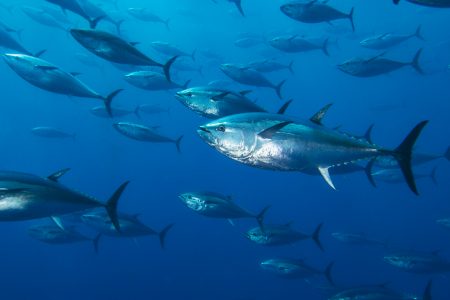
Photo: Alexander Mustard
Birdwatch Ireland in collaboration with the IWT has created a petition calling on the Minister for agriculture, food and the marine, Charlie Mc Conalogue to block a new dangerous proposal which could have devastating effects on fish stocks and incentivise overfishing and underreporting. It has been proposed that the 10% Margin of Tolerance (MoT) should be increased, which allows discrepancy for fishing vessels when reporting their catch. The sustainability of EU fisheries can only happen if scientists and decision makers know what has been caught accurately.
Read below for more information and Sign the petition now.
In February the European Commission released four documents on how to improve EU fisheries (1). Many of these documents reference the Control Regulation, the draft of which was published in February 2020. There are many aspects to the Control Regulation aimed at improving the sustainability of EU fisheries.
These are just a few of the proposals and there are many aspects to this regulation, which, if they were taken on board and made mandatory, would be a huge step in the right direction for proper implementation of the Common Fisheries Policy and restoration and conservation targets of the marine environment.
However, there are some aspects to the Control Regulation which would cause ecological destruction. A proposal on increasing the Margin of Tolerance (MoT) was suggested which would backtrack on current fisheries control regulations in place to support the accuracy of catch reporting. The current MoT allows for a 10% discrepancy in reported catches per species. This means vessels can misreport up to 10% of the weight per species which was caught and this is to allow for genuine mistakes to occur without fines and prosecutions coming down on the vessel and its crew. However, previously the EU parliament proposed to increase this margin to 20% for some small pelagic and mixed fisheries and 25% for tuna species which would have had devastating effects. It has also been proposed by member states that the MoT percentage should account for the entire catch and not on a per species basis. This would allow for the huge underreporting of overfished species and overreporting of fish species that are in favourable conservation condition. This has happened before as the MoT was weakened in the Baltic Sea and this contributed to fish populations collapsing and ‘incentivised’ hidden overfishing (2). The European Commission has even stated ‘this relaxation played a major role in facilitating misreporting of the species…and therefore contributing to the very bad state of the stocks in the (Baltic) region’.
If Member States do not show support to keep the MoT at 10% per species then there is a very real risk that the Commission could withdraw the entire proposal. This would mean that the positive amendments which would help transform EU fisheries and reduce the overfishing which is destroying the oceans ecosystems would also be taken off the table.
This is a huge opportunity for the EU to make positive change and if it is taken away due to member states’ silence over the proposed increase to the MoT it would be a devastating shame. The Common Fisheries Policy, which is supposed to keep fisheries sustainable and prevent overfishing, needs to be properly implemented to ensure the EU meets its international ocean and biodiversity protection and restoration commitments. Seas at Risk states in a joint NGO paper on the Nature Restoration Law that proper restoration of the ocean cannot happen without the CFP actually being put to work. The collapse of fish stocks has knock on effects to the entire marine ecosystem.
Birdwatch Ireland in collaboration with the IWT has created a petition calling on the Minister for agriculture, food and the marine, Charlie Mc Conalogue to block this proposal before the May 30th meeting. Please sign now and share wide so the Irish Minister knows that the Irish people do not want an increase to the MoT. This is a vital time for ocean restoration and we must ensure this dangerous proposal is blocked.
Grace Carr Marine Advocacy and Policy Officer